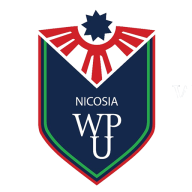



Bu ders, Siyaset Bilimi ve Uluslararası İlişkiler alanındaki temel kavramlar, teoriler ve güncel konulara kapsamlı bir giriş sunar. Öğrenciler, siyasi sistemlerin yapıları ve işleyişleri, siyasi aktörlerin davranışları ve küresel ilişkilerin dinamiklerini keşfeder. Ders, güç, yönetişim, kamu politikası, uluslararası çatışma ve iş birliği, diplomasi, küreselleşme ve uluslararası kurumların anlaşılmasına özel önem verir.
Teorik çalışmalar ve vaka analizlerinin birleşimiyle, öğrenciler siyasi olayları ve uluslararası gelişmeleri değerlendirebilecekleri eleştirel analiz araçlarıyla donatılır. Ders kapsamında öğrenciler, insan hakları, güvenlik, kalkınma, çevre politikaları ve Birleşmiş Milletler gibi uluslararası kuruluşların rolü gibi güncel konularla ilgilenirler.
Dersin sonunda öğrenciler:
*Temel siyasi kavramları, ideolojileri ve kurumları anlayabilecek,
*Uluslararası ilişkileri temel kuramsal yaklaşımlar (Realizm, Liberalizm, İnşacılık vb.) çerçevesinde analiz edebilecek,
*İç siyasetin uluslararası davranış üzerindeki etkisini inceleyebilecek,
*Küresel sorunları ve dış politika kararlarını eleştirel bir şekilde değerlendirebilecektir.
Bu ders, öğrencileri devlet, diplomasi, uluslararası kuruluşlar, sivil toplum kuruluşları (STK’lar) ve küresel iş dünyasında kariyer ve ileri düzey akademik çalışmalar için hazırlar.
ASSOC. PROF. DR. ANTHONY ENIAYEJUNI
Head of Department
anthony.eniayejuni@wpu.edu.tr
WhatsApp us